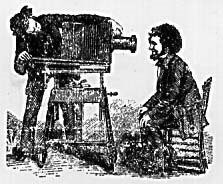It is hard to point out specific texts or people that built the foundation for cultural studies in America. Instead, it was sparked by a range of movement and issues. The GI Bill and America’s rise a global power after WWII are said to have caused the emergence of cultural studies in America. Many struggled with the task of finding an identity for America and there was no legitimate method for analyzing its culture. German intellectuals fleeing to America from Nazi Germany sparked a focus on mass media and its effects on a new concept called mass culture. Some viewed it as a threat to individualism while other recognized it as part of the cultural experience (something that went against most of Europe’s “elitist” views). Issues brought up by the civil rights movement shifted the focus to race and gender’s integration into “the construction of patterns of domination and subordination.” (p. 212) The Vietnam War then changed the way Americans perceived themselves and their relation to the rest of the world and “marked the end of the post-war” era of cultural consensus.”
1) “Identity” is a term that can be brought up a number of times while looking at cultural studies in America. America, after just becoming a world power, searched for a collective identity for themselves which proved hard because of its diverse background. The identity of the individual comes into question when looking at the mass media’s roll and mass-culture. On the subject of race and gender in American culture we’ve seen recent movements of ethnic and sex identities. Keywords says “Identity is to do with the imagined sameness of a person or of a social group at all times and in all circumstances; about a person or a group being, and being able to continue to be, itself and not someone or something else. Identity may be regarded as a fiction, intended to put an orderly pattern and narrative on the actual complexity and multitudinous nature of both psychological and social worlds. The question of identity centers on the assertion of principles of unity, as opposed to pluralism and diversity, and of continuity, as opposed to change and transformation.”
2) Wikipedia link: http://en.wikipedia.org/wiki/GI_Bill
The GI Bill of 1944 had a profound effect on higher education in the United States. It aided in the creation of Cultural Studies as a field in America.
3)http://www.washington.edu/uwpress/books/series/Seriesamerican.html
This links to a number of books recommended by our fine university. Each book has a brief summary which can give you a good look at how ethnic cultural studies can be approached today.

1 comment:
4/16
Our two sources were almost opposite. While our reader packet only covered American Cultural Studies and Media studies in depth the book covered American, Canadian, French, and technology C.S. a little, and south Asian C.S. and Orientalism a ton. Our packet talked about numerous people of influence on American C.S. including, but not limited to, Fredierick Jackson Turner, Gene Wise, Henry Nash Smith, Leo Marx, Hannah Arendt, Marshal McLuhan, and Roland Barthes. The book didn’t focus as much on individuals, but overcastting movements for example Post modernist in America, Canada’s identity struggle (between English, French, and native languages), Australia’s effort to be more British, the French’s identity struggle, and the South Asian CSDS.
In America several events, the GI bill and American’s growth in power, jump started the American Cultural Studies. Once the US became the Worlds sole super power American’s view of themselves changed again.
1) Keywords: Education:
Higher education what some claim jump started cultural studies in Britain. It also helped further the movement in America. “Few would deny that education is both an individual and a social good.” By reaching higher academically new thoughts and disciplines are created, a big reason American cultural studies got under way. Also, education helps define cultures for the individual and the community. “It can lead us forth into the relatively homogeneous cultural values and expectations of a traditional community, or into the complexities of hybrid identities and conflicted values of a culturally diverse society.”
2) Wikipedia: Hegemony: http://en.wikipedia.org/wiki/Hegemony
Hegemony is a word used to describe the dominance of one social group over another. The ruling class obtains “some degree of consent from the subordinate, as opposed to dominance purely by force. It is used broadly to mean any kind of dominance, and narrowly to refer to specifically cultural and non-military dominance, as opposed to the related notions of empire and suzerainty.” Antonio Gramsci created the more widely known accounts of Hegemony. “ccording to Gramsci, hegemony consists of socio-political power that flows from enabling the "spontaneous consent" of the populace through intellectual and moral leadership or authority as employed by the subalterns of the State.”
3) Leo Marx: http://web.mit.edu/sts/faculty/info/Marx_Leo-css.html
Leo Marx was/is not a decendant of the famous Carl Marx but he too had an impact on Cultural Studies. “His work examines the relationship between technology and culture in 19th and 20th century America.”
Post a Comment